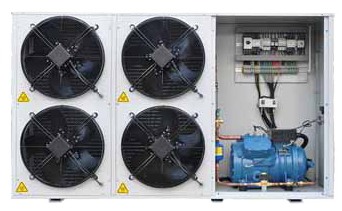
COLD ROOM PERFECT
Choosing the perfect cold room for your business is crucial to ensure the proper storage of perishable goods. Here are 10 essential tips to guide you through the process:
10 Essential Tips for Choosing Cold Rooms
Define Your Storage Needs: Clearly identify the types and quantities of products you’ll be storing. Consider temperature requirements, whether it’s for frozen, chilled, or ambient storage.
Size Matters: Determine the size of the cold room based on your storage needs. It’s better to have a slightly larger cold room than to run out of space later. (Width-Lentgh-Height)
Insulation Quality: Invest in a cold room with high-quality insulation to minimize temperature fluctuations and energy consumption. Look for materials like polyurethane foam insulation. Sandwich Panels
Temperature Control: Choose a cold room that offers precise temperature control. Some products may require specific temperature ranges, so having adjustable controls is essential.
Energy Efficiency: Opt for energy-efficient cold rooms with features like LED lighting, efficient compressors, and well-insulated doors to reduce electricity costs over time.
Easy Maintenance: Consider the ease of maintenance and cleaning. Choose materials that are resistant to corrosion, easy to clean, and have accessible components for maintenance.
Quality of Construction: Ensure that the cold room is constructed with high-quality materials and meets industry standards. A well-built unit will be more durable and provide better performance.
Reliable Brand and Supplier: Choose a reputable brand or supplier with a track record of providing reliable and durable cold room solutions. Read customer reviews and ask for references.
Security Features: Invest in a cold room with proper security features, such as lockable doors and temperature alarms. This helps protect your valuable inventory and ensures compliance with food safety regulations.
Compliance with Regulations: Ensure that the cold room complies with relevant industry regulations and standards. This is especially important in sectors like food storage, where adherence to health and safety guidelines is crucial.



















































